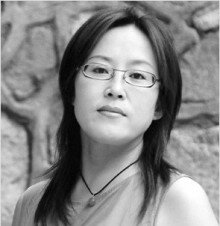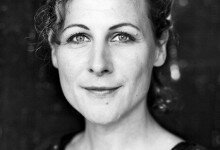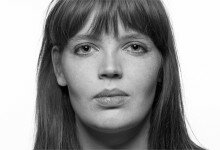
Na Ye 娜夜 is an ethnic Manchu poet in China. While her family was originally from Niaoning province, northeast China, she grew up in West China where Chinese Muslims live. After graduating from the Chinese department of Nanjing University, she went back to the west, Lanzhou city, to work as a journalist. She writes in the Chinese language as Han Chinese is taught in schools all over the country and most of the ethnic minorities are assimilated culturally and linguistically, especially Manchus and Muslims. Manchu language is one of the dying languages in the world.
Reading Na Ye’s poems written in Han Chinese 汉语, one still gets an impression that she is different from most of the other Chinese poets. How different and in what way? Like most of the ethnic writers in China, they don’t care much about modernism or post-modernist experiments. Na Ye writes about love, nature, how she responds to the seasons and how she feels about small moments in life. She is not a typical poet of the west either although she has spent most of her life in the wild wild west of China, her poems are not wild or uninhibited like some of the writings from that region. She talks softly, but sometimes she surprises readers with a strong political reference, "I love my fatherland/ even though he’s sick all over his body..."
Recently she’s relocated to Chongqing City in central China, still very quiet. Over the years she has won both of the two major awards for poetry in China, People’s Literature Award and Lu Xun Award. While these government awards have been notorious in China, Na Ye as a mainstream but quiet poet has never been controversial. She is well respected by the avant garde circles. Her poems speak of universal themes in simple, contracted syntax.




